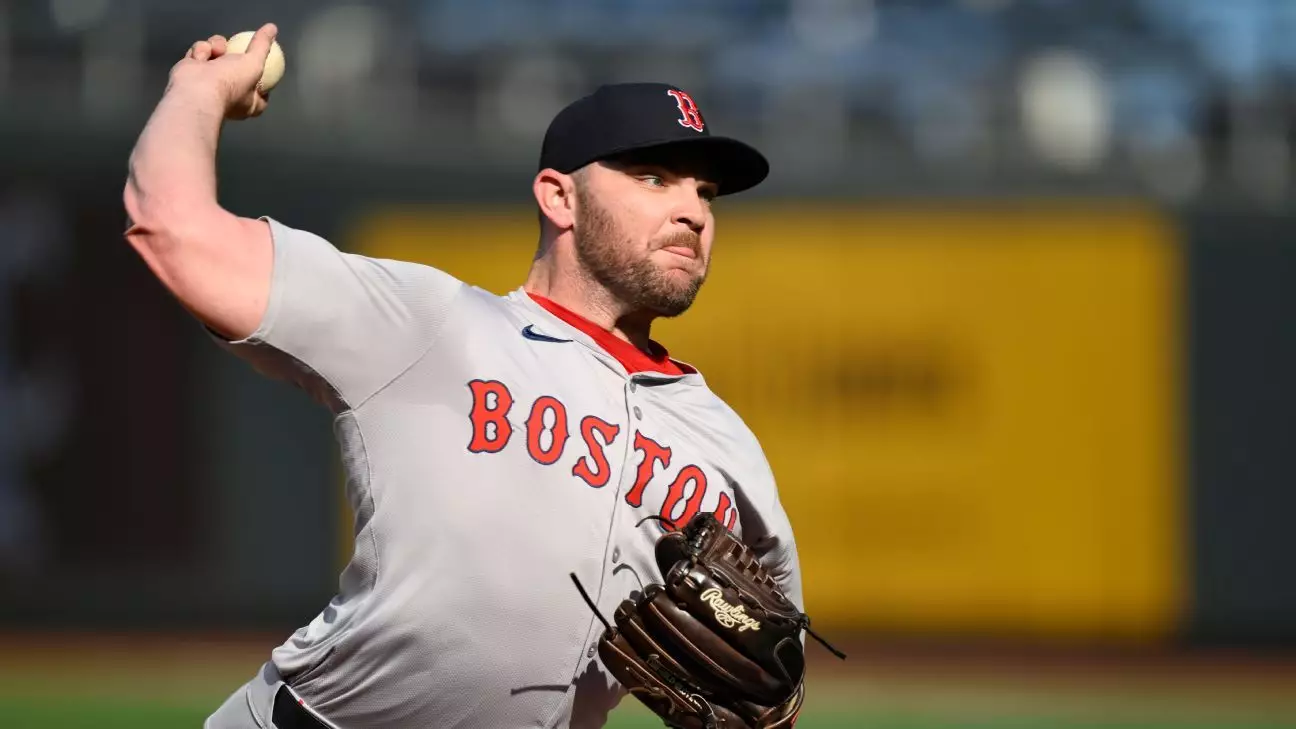In recent years, the realm of sports has transcended the traditional boundaries of competition and sportsmanship, entering an unsettling territory filled with toxic interactions and dangerously aggressive behavior. The recent incident involving Boston Red Sox reliever Liam Hendriks serves as a poignant reminder of the dire realities athletes face off the field. With an alarming increase in threats and harassment directed at players and their families, it’s imperative to dissect this troubling trend that tarnishes the spirit of the game.
Hendriks, who has bravely battled non-Hodgkin’s lymphoma, recently found himself the victim of death threats following a disappointing game. It’s appalling to recognize that the pressures of the game can transcend the field and lead to a visceral, aggressive backlash against players. Are fans so consumed by their allegiance to a team that they lose touch with the basic decency owed to fellow human beings? The answer seems to be an unsettling yes, as anonymous accounts proliferate across social media, enabling bullies to hide behind the veil of anonymity while spewing threats and vitriol.
The Emotional Toll on Players
Manager Alex Cora, empathizing with Hendriks, noted the harsh reality that athletes are subject to public scrutiny and ridicule on social platforms. “We’re in the public eye, and people feel they have the right to say whatever they want,” Cora articulated, echoing a sentiment shared by many players. Such aggressive behavior, often harmed by the anonymity of social media, creates a culture of fear that can weigh heavily on the mental health of athletes. The boundary between passion and hostility has blurred, and in an age where we should be empowering each other, we instead witness a sinking into moral depravity.
Those who chronicle sports, including journalists and fans, have a responsibility to foster a more positive environment, yet the current landscape often promotes negative rhetoric. The question, then, is why is this trend allowed to persist? Why do social media platforms that profit from such interactions fail to implement adequate measures to protect individuals from harassment and threats?
The Role of Social Media in Athlete Harassment
Cora’s reaction to the wave of negativity showcases a growing awareness among teams and players regarding the dangers of unchecked social media. His comments highlight a larger issue: while sports gambling and fandom have become increasingly intertwined, they often come with dire consequences for players who make mistakes or perform poorly. “A decision, a pitch, a play,” Cora said. “It puts them in a bad spot and they take it personally.” The implications of this statement are profound; the emotional toll that comes from performance anxiety is coupled with the stress of harassment, creating a toxic environment that few can manage to navigate.
Athletes are human beings, not mere commodities meant for entertainment or scapegoats for a bad game. They should not face the harsh reality of death threats or life-altering harassment due to an imperfect performance on the field. It is imperative to reframe the dialogue surrounding sports to highlight respect, empathy, and a celebration of the human spirit, particularly in the face of adversity.
Protecting Our Athletes: A Moral Imperative
As fans, it is our responsibility to foster a culture that celebrates athleticism and integrity rather than one defined by hostility. The emotional and mental health of athletes like Hendriks should take precedence over entertainment value. Organizations, including MLB, have a moral imperative to create boulevards of protection for players. This can no longer be viewed as an ancillary consideration. By ensuring comprehensive anti-harassment policies across all levels of sport, we can move toward a future that is not clouded by the fear of threats.
Beyond regulatory measures, it’s time for fans to undertake a collective introspection. How can we enjoy sports, celebrate success, and accept failures without resorting to harmful rhetoric? The answer lies in empathy, a quality that can turn players into relatable figures rather than distant idols. Each statement delivered on social media has the power to shape perceptions, and every fan interaction can either uplift or demean.
As we examine the implications of such threats within the sporting community, perhaps the most pressing question is: when will fans reclaim their humanity? The answer demands an urgent reevaluation of what it means to be a fan in today’s digital age.



Leave a Reply